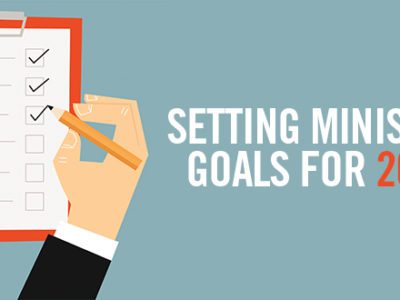“If you don\’t know where you’re going, you might not get there.”
Former baseball player Yogi Berra is credited with that gem and it serves as a great reminder for you to be strategic as you seek to lead your kids ministry well. January offers the perfect opportunity to pull aside with your team, reflect on last year, and determine goals for 2016. As you develop goals, be sure that each one is:
Global. This doesn’t mean that you have to develop a goal to reach the entire world for Christ this year, although worldwide impact should certainly be on your radar. Instead, this means that your goals should cover the entire ministry God has entrusted to you—your kids, your families, your leaders, and your community. Set goals that involve each of these four areas of ministry to stay balanced.
Ongoing. Discipling kids and families is a process of meaningful gospel-transformation. Set goals that align with this and produce ongoing, lasting results. A goal of increasing Vacation Bible School attendance by 20% from last year is great, but also be sure to connect that goal with how it will transform your kids, families, leaders, and community for the long-term. In other words, be clear on why that goal matters.
Assessable. Set goals that are measurable quantitatively, qualitatively, or better yet, in both ways. Setting goals based on participation is easier to measure, but sometimes the best goals are measured more anecdotely. For example, a kid attending Bible study more frequently is wonderful, but an even better indicator of gospel-transformation is her deeper level of participation each week.
Leading. Lead goals are goals you can directly impact and that lead toward another goal—a lag goal. So a lead goal would be handing out 50% more Bible study invitations this year which connects to the lag goal of increasing Bible study attendance 10%. You cannot control kids attending, but you can control inviting, which will generally impact attendance. When most of us think of goals, we think of lag goals and they are important, but be sure to connect them with lead goals as well.
Strategic. Because discipling kids and families is a process, the goals you set each year will depend largely on what season of ministry you are in. Strategically consider where you are and what specific steps you need to take next. Perhaps this is a season where you really need to help your families connect. Or it might be a season of pushing toward deeper Bible study or outreach. While you should not neglect a holistic ministry, there is great wisdom of focusing your annual goals more narrowly as you move toward your longer term ministry goals.
Brian Dembowczyk is the team leader for The Gospel Project for Kids. He served in local church ministry for over 16 years before coming to Lifeway. Brian earned an M.Div. from the Southern Baptist Theological Seminary and a D.Min. from the New Orleans Baptist Theological Seminary. Brian, his wife, Tara, and their three children—Joshua, Hannah, and Caleb—live in Murfreesboro, TN, where Brian enjoys drinking coffee and teaching 1-3 graders at City Church.



 New to KidMin – The Basics for Beginners
New to KidMin – The Basics for Beginners »
»
Leave a Reply